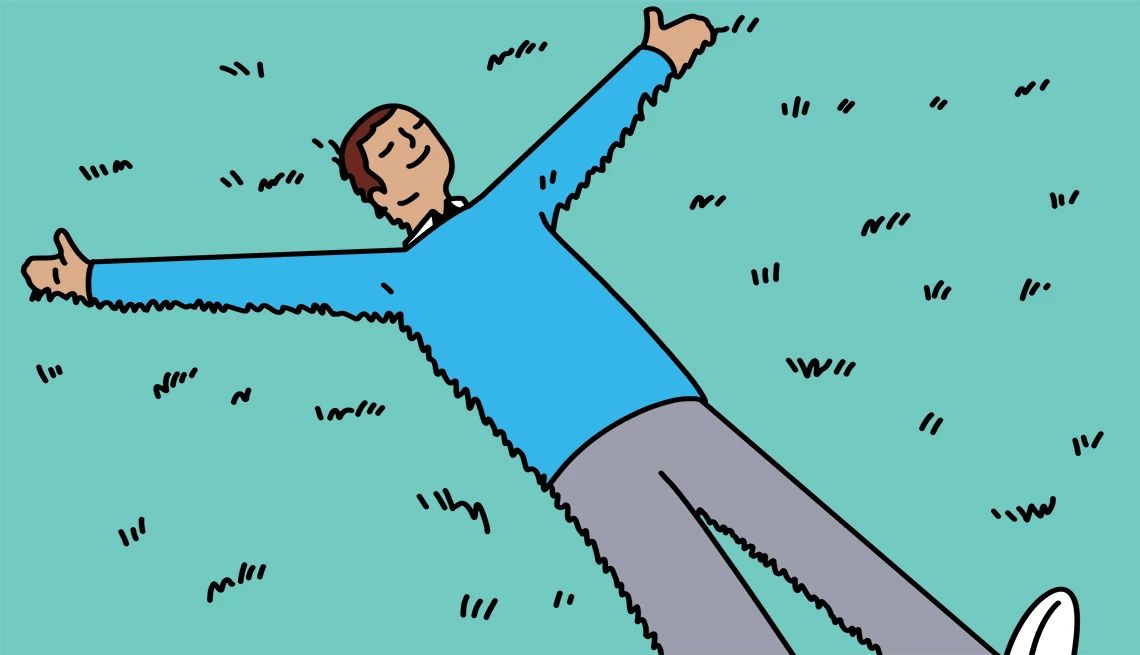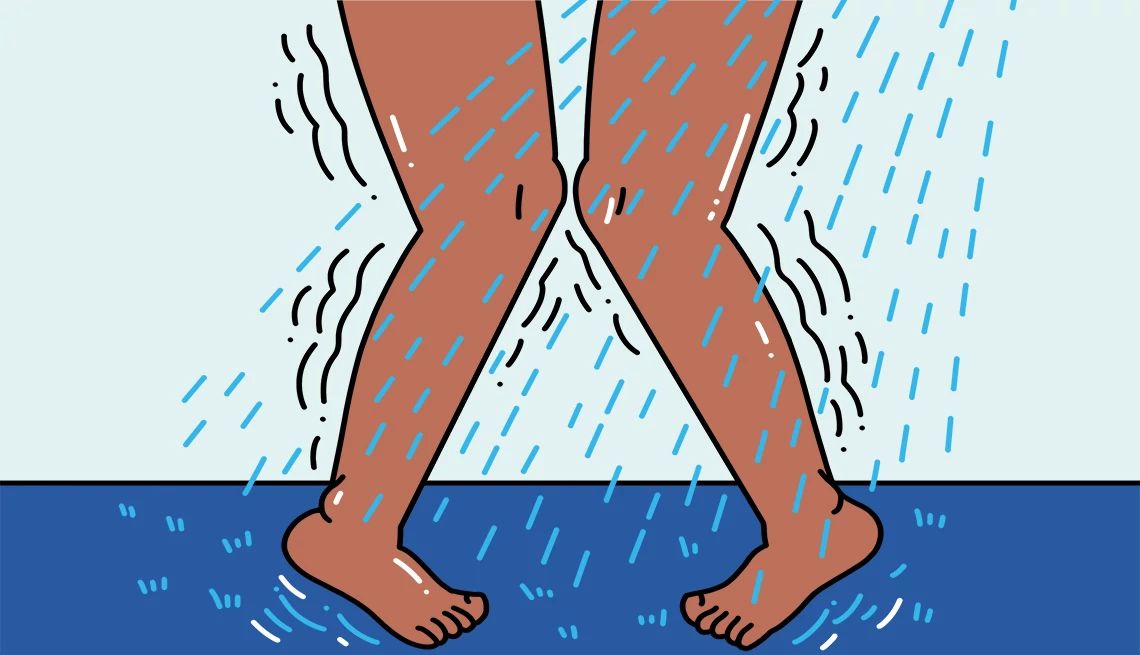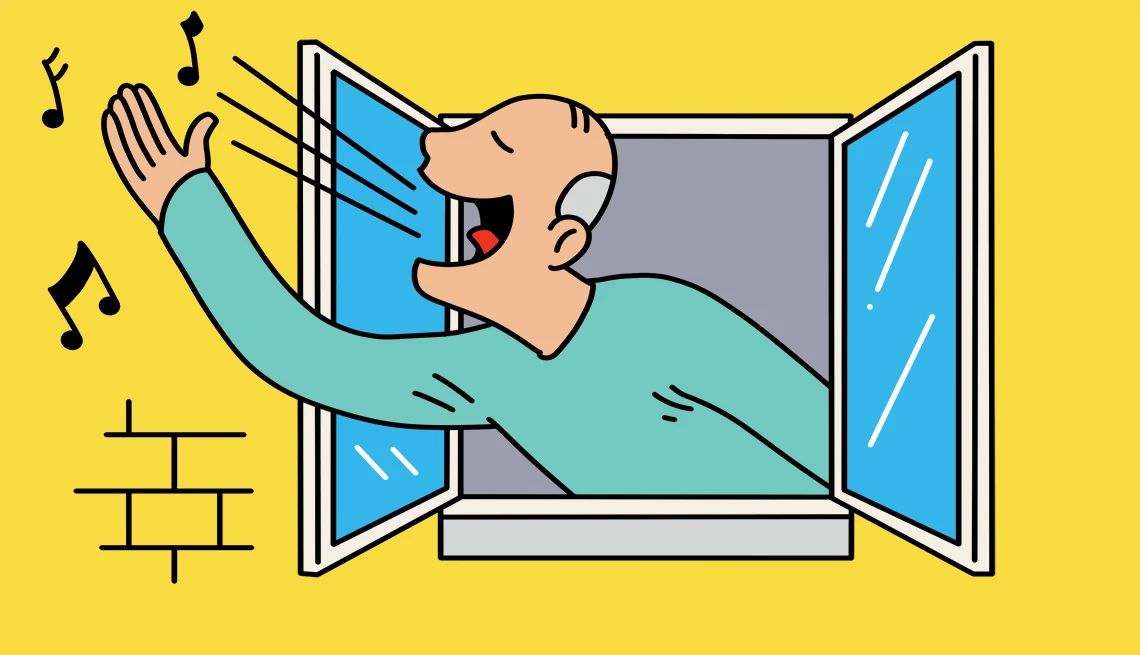AARP Hearing Center


Life has changed a lot since the Stone Age, but one aspect of the human condition has been a constant for millions of years: stress. Although stress today comes from smartphones instead of saber-toothed tigers and bills instead of bubonic plague, its devastating effects remain the same, including a wide range of mental, emotional and physical problems. Fortunately, you can manage stress — even if you can’t eliminate it. We’ve compiled 25 ideas that will help you get started. Decide which ones could work for you, then share your own tips at the bottom of the page.


AARP Membership— $12 for your first year when you sign up for Automatic Renewal
Get instant access to members-only products and hundreds of discounts, a free second membership, and a subscription to AARP the Magazine.
1. Determine your stress personality
Managing stress starts with understanding how you react to it, says Lauren Hodges, author of Less Stress, More Calm: Discover Your Unique Stress Personality and Make It Your Superpower. “Research in stress neurosciences has found that we don’t all show up the same way when it comes to our stress.… We all have a unique ‘stress personality’ — patterns of thought, emotion and behavior under stress,” she says. Hodges has identified eight different stress personalities: the Fighter, the Runner, the Worrier, the Freezer, the Pleaser, the Negative Self-Talker, the Distracted and the Thriver. Knowing yours can help you tailor stress-management strategies. For example, a Fighter, who attacks first and asks questions later, might benefit from deep breaths or a long walk, while a Runner, who avoids discomfort, might need alone time. According to Hodges, you can find your stress personality by journaling every day for a few weeks about your thoughts, behaviors and emotions during stress. “Look for the patterns, and you’ll find the personality,” she says.
2. Learn anchoring
“One of the things that causes stress is overthinking — replaying things that happened that were upsetting to us and anticipating the next upsetting thing,” says Jenny Taitz, a clinical psychologist and the author of Stress Resets: How to Soothe Your Body and Mind in Minutes. She recommends a practice called anchoring — taking a moment to ground yourself in the present instead of focusing on the upsetting past or the hypothetical future. To practice anchoring, ask yourself these questions: What am I thinking? What am I feeling? What am I doing right now? “It’s about coming back to the demands of this moment,” says Taitz, adding that a quick time-out allows you to assess your next steps and make choices that move you forward, not hold you back.
3. Practice radical acceptance
You can’t avoid stressful situations entirely, but you can reduce their impact by learning to accept them, according to Taitz. She says people who don’t accept challenges and obstacles end up ruminating on them, which only worsens their stress. Instead, Taitz suggests rating your acceptance of a stressful situation on a scale from zero to 10, where 10 is total acceptance. Next, ask yourself what you would do if you were to accept the situation instead of resisting it, then do that. For example, if you’re stressed by the prospect of a difficult task, you might take steps to actually complete it. Finally, rate your acceptance again to see if it’s improved. “Meeting difficulty with acceptance changes how we feel and keeps pain as pain without turning it into suffering," Taitz says.
4. Don a half-smile
When people are under stress, their bodies usually follow their minds. They might clench their fists, tense their muscles or grind their teeth. If you’re deliberate about it, Taitz says you can flip the script in stressful situations by leading with your body. She recommends forcing a half-smile by relaxing your face, neck and shoulders and slightly raising the upper corners of your lips. “It’s so easy to scowl when things aren’t going the way we want them to, and that creates a negative loop,” says Taitz. “When we’re scowling, we’re more prone to think negatively. And when we’re thinking negatively, we feel worse.” Research shows that smiling may induce positive emotions. For example, a 2022 study in the journal Nature Human Behaviour found that people who altered their facial expressions to appear happier actually felt happier as a result. At the very least, as Taitz notes in her book Stress Resets, a half-smile can make you more approachable to others, and their conversation and company might lift your mood.


5. Take a cold shower
On a physiological level, a certain amount of mild stress can be good for the body. Scientists call this hormetic stress, and one way to address it is to take a cold shower. Hormetic stress can help you build resilience so that your cells — and perhaps even your mind — can tolerate more stress and recover from stress more quickly, says Elissa Epel, a professor of psychiatry at the University of California, San Francisco, and director of the school’s Aging, Metabolism and Emotions Center. “Hormetic stress works almost like a vaccine — you receive a microdose of the ‘virus’ (stress), and then, later, when you face a large, intense similar stressor, you’re essentially inoculated against it,” Epel notes in her book The Stress Prescription: Seven Days to More Joy and Ease. A cold shower is an easy way to get a good dose of hormetic stress, according to Epel. “At the end of your usual warm shower, turn the dial to cold — as cold as you can stand it,” she writes in The Stress Prescription. “Can you stay under the cold stream for 15 or 30 seconds? A minute? … Match the shock of the stress response with a relaxed mind as much as possible. This is what builds resilience.” (Note: If you have a heart condition, it’s best to skip this one, as sudden cold-water exposure can cause a spike in blood pressure.)
6. Follow your plan, not your mood
According to Taitz, studies show that the psychotherapeutic treatment known as behavioral activation can work just as well at treating depression as antidepressant medications. She says the practice can also manage stress. But what is it, exactly? It boils down to a simple axiom: How you feel is connected to what you do. So don’t cancel plans or procrastinate if you feel stressed. Instead, forge ahead with plans and activities that make you feel joy or accomplishment. “Stick to a plan rather than a mood,” Taitz says. “It doesn’t have to be hour by hour, but it’s important to do even just a few things each day that make you feel alive and make you feel like you’re moving toward your goals.”
7. Embrace casual connections
Taitz says social isolation can cause stress and also worsen it, adding that loneliness can be so toxic that it elicits a physical response in the body. Although close friendships are an obvious salve, she says even casual connections can be healing. Taitz recalls a study in which volunteers went to a Starbucks with instructions to either avoid or embrace impromptu conversations and interactions with others. Those who embraced the casual connections reported better moods and increased feelings of connection. “A lot of us think in all-or-nothing ways about relationships,” Taitz says. “We’re either really close or total strangers. But what if you start to chat with the person at the store or introduce yourself to a friend of a friend, or a neighbor? Working on casual connections can be really helpful, because social support is such a powerful stress buffer.”
8. Sweat it out
Exercise is another reliable source of hormetic stress. In fact, a 2024 study in the Journal of the American College of Cardiology found that greater physical activity correlated to lower stress levels in more than 50,000 adults ages 45 to 70. For the most stress-busting benefits, both Epel and Taitz recommend short bursts of intense exercise — provided your doctor says you’re healthy enough for it. “Try one round of high-intensity interval training (HIIT),” says Epel. HIIT cycles vary and can include jumping jacks, planks, squats, crunches or lunges, weight lifting and running. You do 30 seconds of exercise at maximum effort, then rest for 10 seconds, then exercise for another 30 seconds, and so on.































.jpg?crop=true&anchor=13,195&q=80&color=ffffffff&u=lywnjt&w=2008&h=1154)































You Might Also Like
The Benefits of Puzzles Like Wordle
Researchers say these games can help your brain, just not in the ways you might think
Major Health Risks for People 50+
Research shows the odds of getting cancer and other conditions grow over time; Learn how to dodge them
Top Tips for Finding Happiness
What foods to eat, embracing bright colors and more, our gladness gurus have strategies that may boost your mood
Recommended for You